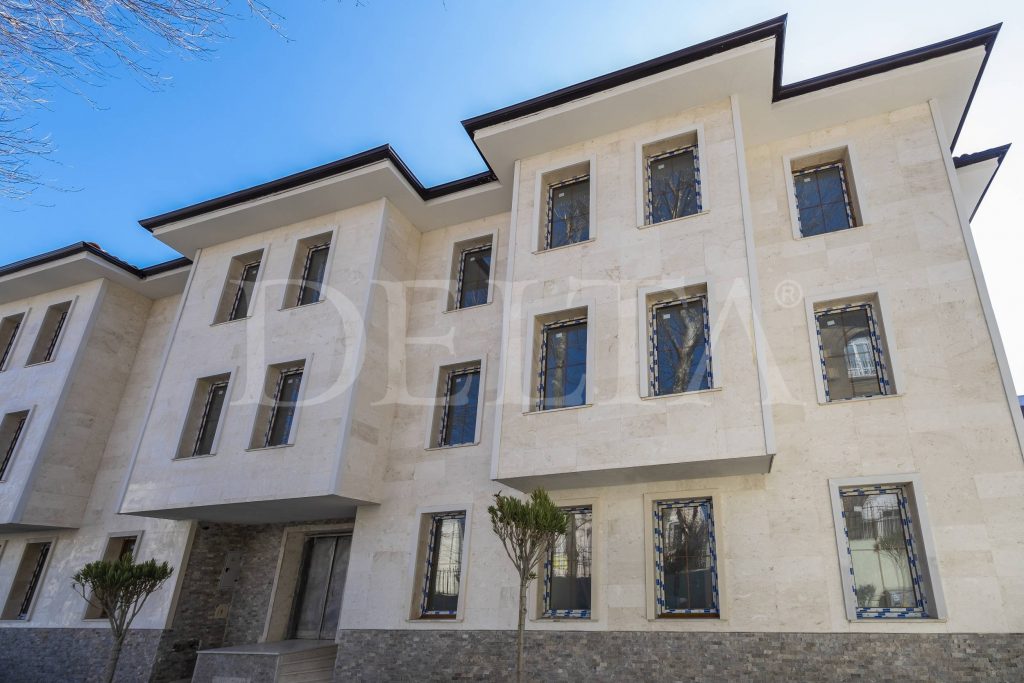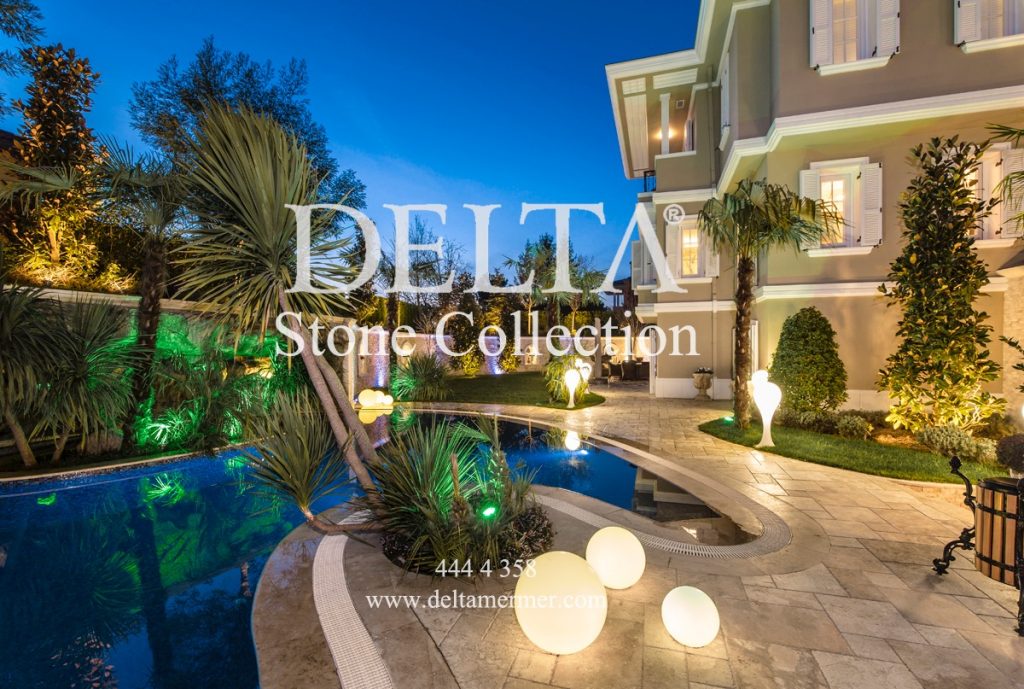Marble, which embodies the elegance of nature, stands out as a unique material in the world of construction and decoration. In particular, marble coating offers durability and long-lasting use as well as providing an aesthetic touch to the spaces. Let’s consider in detail what marble coating is, how it is made, which marble types are preferred, usage areas and advantages.
What is Marble Coating?
Marble cladding means covering a surface, usually areas such as walls, floors or countertops, with natural marble slabs. This application provides both an aesthetic visuality and a durable coating to the spaces.

How is Marble Cladding Made?
Preparation Phase: The surface to be coated is cleaned, levelled and flattened.
Cutting and Application of Marble Slabs: Marble slabs are cut in special sizes and mounted on the surface using adhesives.
Polishing and Protection: After drying, the marble coating is polished and a protective layer is applied to increase its durability.
Which Marble Types are Used in Marble Cladding?
Carrara Marble: It is famous for its grey veins on a white background.
Calacatta Marble: Calacatta with thick grey veins on a white background is known for its elegance.
Emperador Marble: This brown-toned marble contains veins of various shades and creates a warm feeling.
The Most Preferred Marbles in Marble Coating in terms of Visuality:
Carrara: Carrara, which has an elegant and classic appearance, is generally preferred in luxury interiors.
Statuario: With its intense grey veins on a white background, Statuario offers a sophisticated and modern look.
Marble Coating Usage Areas:
Home Interiors: It provides an aesthetic touch in home interiors such as kitchen countertops, bathroom floors, stair steps.
Hotels and Restaurants: Since it represents luxury and elegance, it is frequently used in hotel lobbies, restaurants and cafes.
Office Buildings: It is preferred in office buildings due to its prestigious appearance and long-lasting material advantage.
Shopping Centres: It is used in store interiors and prestigious shopping centres, adding value to the shopping experience.
Marble Coatings Used in Turkey:
Afyon White: This marble from Turkey is known for its white ground and grey veins.
Burdur Beige: This marble in beige tones is frequently used in Turkish architecture.
Muğla White: It draws attention with its intense white colour and light grey veins.
Advantages in Heat, Light, Hot and Cold Insulation:
Thermal Insulation: Marble is a natural insulator and is known for its ability to absorb and release heat.
Light Reflection: Thanks to its glossy surface, it reflects light and adds a natural brightness to the space.
Hot and Cold Insulation: Thanks to its natural properties, it is resistant to temperature fluctuations.
Advantages of Marble Cladding over Other Cladding Products:
Aesthetic Diversity: It adapts to every style with its rich colour and pattern options.
Durability: Marble is a long-lasting material and is resistant to scratches, abrasions and impacts.
Value Addition: It adds value to the space and increases the investment value.
Easy Maintenance: It is easy to clean and maintain, requiring only regular cleaning.
Marble coating has an important place in the world of construction and decoration by offering many advantages from aesthetics to durability, heat insulation to light reflection properties. With a choice of colours and patterns to suit all tastes, marble cladding enhances the character of spaces and maintains its elegance for many years. Turkey’s marble wealth has a worldwide importance in this field, which makes marble cladding preferred in many projects in Turkey.




